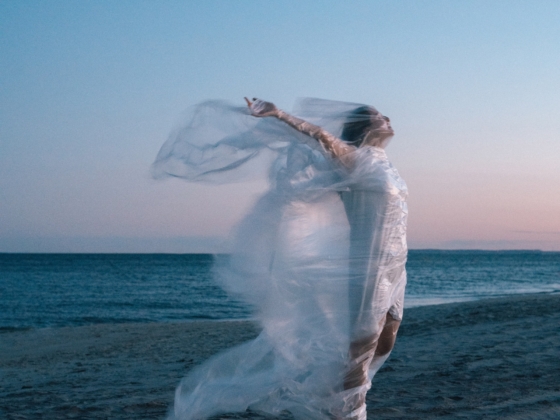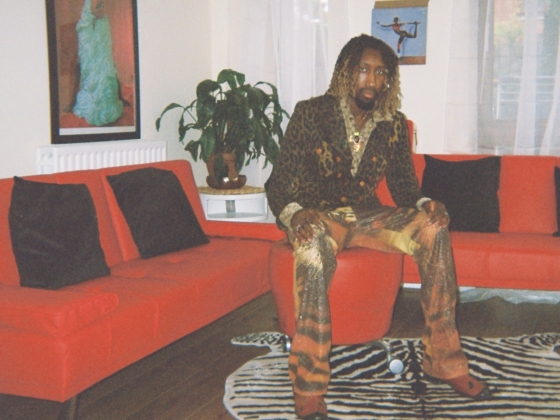Half Waif’s latest offering, See You At The Maypole, pushes Nandi Rose's unique brand of art-pop even further into both sonic experimentation and emotional vulnerability. Known for weaving intricate synth landscapes with folk influences, Rose has always explored the interplay between nostalgia, displacement, and personal transformation.
In her first full-length release since 2021’s Mythopoetics, she’s leaning even more heavily into the folkish intimacy and the electronic abstraction that has defined her previous work. See You At The Maypole feels like a culmination of a journey where Rose dissects not just her internal world but also invites listeners into a shared space of ritual, memory, and communal healing.
At the heart of Half Waif's music has always been the tension between her densely layered, electronic compositions and the fragility of her voice. The heavy, percussive synths of The Caretaker (2020) and the emotive, piano-driven ballads of Lavender (2018) seemed to be two sides of the same coin, exploring different aspects of Rose's persona. See You At The Maypole though, feels more fluid and less rigid in its sonic boundaries. Tracks like the shimmeringly fragile “Figurine” and half-spoken poetry of “Heartwood” blend subtle acoustic instrumentation – think pastoral string arrangements and muted piano – with textured percussive soundscapes. The effect is cinematic, but never overblown, allowing Rose’s voice to cut through the haze like a guide leading you through foggy terrain.
Thematically, the album is anchored by Rose’s meditations on cyclical time, memory, and the concept of home – not just as a place, but as a state of being. The album title itself evokes both a confused mix of celebration and tradition, yet there's an undercurrent of obvious melancholy. Conceived in the harsh winter, upstate New York, when Rose found herself pregnant and inspired to create joyous music only to then lose that potential future and her unborn child. There’s a palpable tension between the ritualistic – "Sunset Hunting," "Ephemeral Being," and the maypole dance, which represents the return of spring – and the transitory, the ever-present realization that nothing can stay the same but there's a possible place to put her pain. The resulting stillbirth/miscarriage and treatment Rose endured were dealt with in private but resulted in her carrying (death) a part of her former pregnancy around inside her for months until she obtained further medical care. What was intended as an opportunity to depart from the darker works and traumas of her earlier work evolved into a solo retreat
Rose wrote to save herself. Before the sunrise, she wrote in the quiet corner of the would-be nursery while her husband slept across the hall. These were lullabies for no one, whispers dissipating into the fog. However, despite its often heavy themes, there’s an unmistakable buoyancy to parts of the album. "Dust," for instance, is a rare moment of bright, shimmering production almost feeling like a benediction after the more introspective moments. It’s these tonal shifts that make the album feel dynamic and full of life.
Ultimately, See You At The Maypole stands as one of Half Waif's most ambitious works to date. It feels like both a homecoming and a farewell, a look into the past, and a tentative step toward the future. For anyone who has followed Nandi Rose’s musical evolution, this album feels like the natural next step – a rich, complex portrait of an artist who continues to redefine herself and in so doing relate to a wider community, to others who deal not only so acutely with loss but also with moving on, as she sings on "Heartwood." "I embrace in all directions."
Connect with Half Waif: Twitter / X | Instagram | Website









